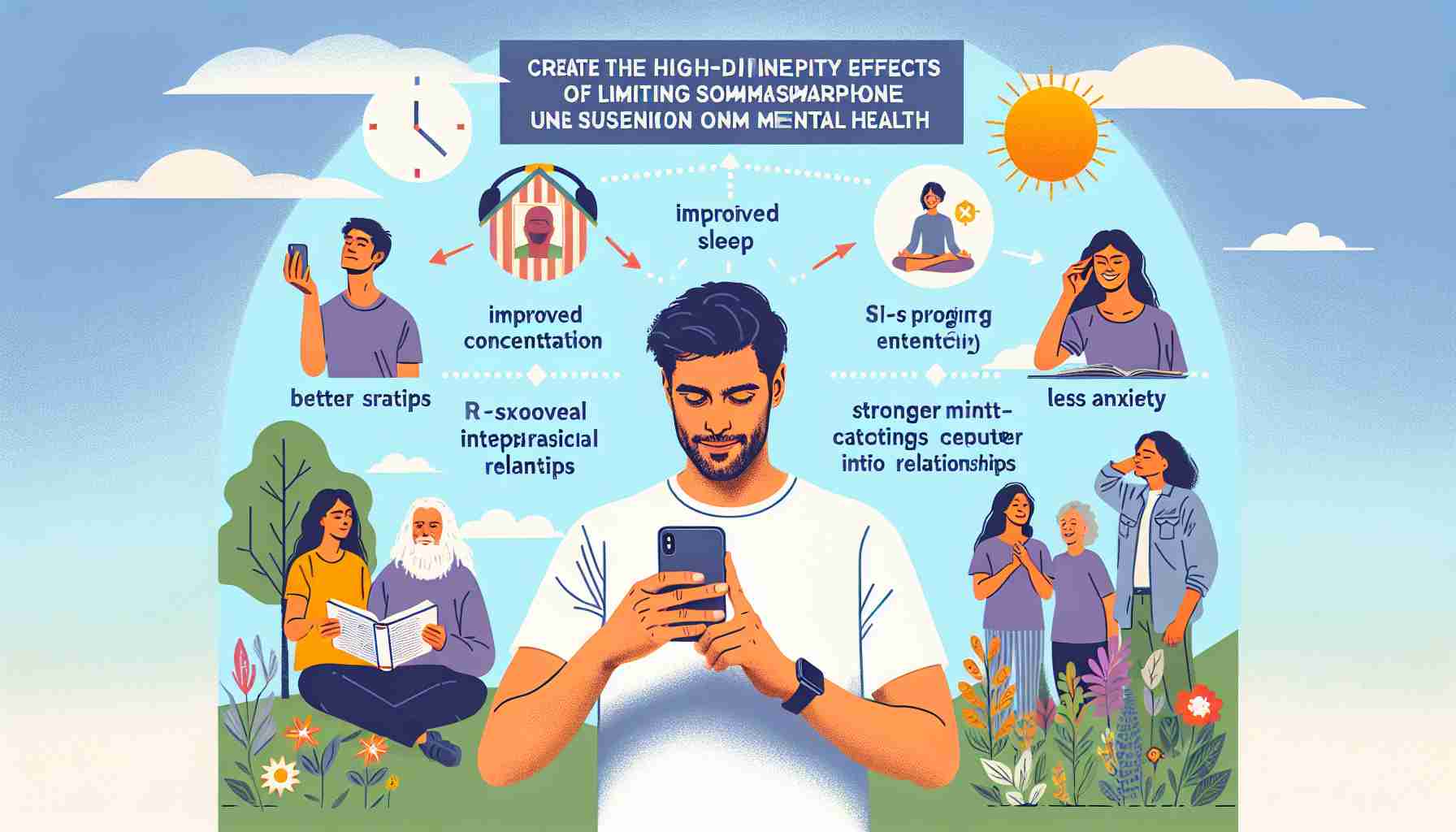A New Perspective on Smartphone Use
The excessive use of smartphones can have detrimental effects on mental health, leading to symptoms of depression, anxiety, and insomnia. By reducing screen time and limiting smartphone use, individuals may experience a positive impact on their overall well-being.
Benefits of Decreasing Smartphone Dependence
When individuals reduce their dependence on smartphones, they may notice improvements in their mental health. Greater self-control, reduced feelings of impatience or fretfulness, and increased focus in daily activities are just a few benefits of limiting smartphone use.
Enhanced Social Interactions
Decreasing smartphone use can encourage individuals to engage in face-to-face interactions and physical activities, leading to improved emotional regulation and social connections. By relying less on smartphones for socialization, individuals may develop stronger interpersonal relationships.
Quality of Sleep and Well-being
Studies have shown that excessive smartphone use can disrupt sleep patterns and contribute to insomnia. By disconnecting from smartphones before bedtime, individuals may experience better quality sleep, reduced anxiety, and improved overall well-being.
Empowering Individuals to Prioritize Mental Health
By recognizing the impact of problematic smartphone use on mental health, individuals can take proactive steps to prioritize their well-being. Practitioners can provide support and guidance on regulating smartphone use to improve mental health outcomes.
Looking Towards the Future
As technology continues to advance, it is essential to monitor and understand the effects of smartphone usage on mental health across all age groups. By promoting a balanced approach to smartphone use and encouraging healthy habits, individuals can cultivate positive mental health and well-being.
Exploring Further Impacts of Limiting Smartphone Use on Mental Health
In addition to the well-documented benefits of reducing smartphone dependence on mental health highlighted in the previous article, there are other important aspects to consider when examining the effects of limiting smartphone use. Let’s delve into some key questions and explore related challenges associated with this topic:
Are There Additional Health Benefits Beyond Mental Well-being?
Limiting smartphone use not only has positive effects on mental health but can also offer physical health benefits. Decreasing screen time can lead to reduced sedentary behavior, which in turn may lower the risk of obesity, heart disease, and other lifestyle-related illnesses.
How Does Limited Smartphone Use Impact Productivity and Focus?
A lesser-known advantage of reducing smartphone dependency is the potential for enhanced productivity and focus. Minimizing distractions from constant notifications and social media updates can help individuals concentrate better on tasks, leading to improved efficiency and performance.
What Challenges Exist in Implementing Smartphone Use Restrictions?
While the advantages of limiting smartphone use are clear, challenges may arise when attempting to enforce restrictions. Social pressures, work demands, and the ubiquity of smartphones in daily life can make it difficult for individuals to maintain boundaries, leading to potential relapses in excessive use.
Is There a Disconnection Risk in Reduced Smartphone Use?
One concern related to limiting smartphone use is the potential for feeling disconnected from the digital world and missing out on important information or social interactions. Striking a balance between reducing screen time and staying connected for necessities is crucial to avoid feelings of isolation or exclusion.
Advantages and Disadvantages of Implementing Smartphone Restrictions
Advantages of limiting smartphone use include improved mental and physical health, enhanced focus, stronger social connections, and better sleep quality. However, disadvantages may include initial withdrawal symptoms, resistance to change, potential social alienation, and the need for alternative coping mechanisms.
In conclusion, while reducing smartphone dependency can bring significant benefits to mental health and overall well-being, it is essential to address the challenges and controversies associated with implementing such restrictions. By understanding the broader implications and considering various perspectives, individuals can make informed decisions regarding their smartphone usage habits.
For more insights on maintaining a healthy balance between technology use and mental wellness, visit Psychology Today.
Remember, moderation and mindful usage are key in harnessing the positive effects of limiting smartphone use on mental health.























